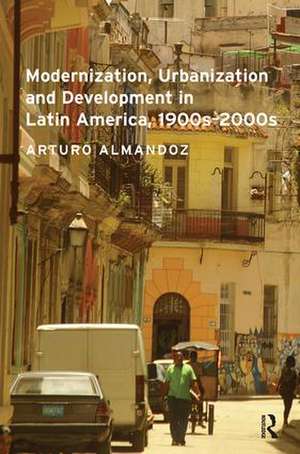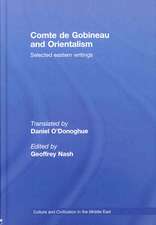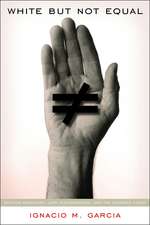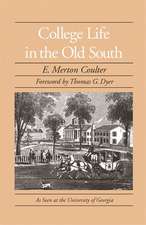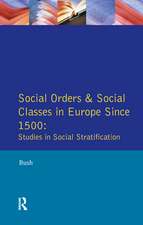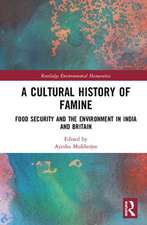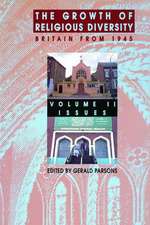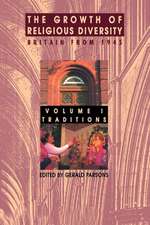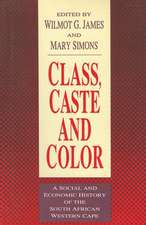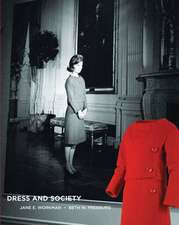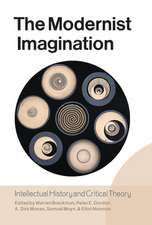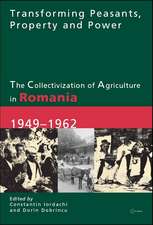Modernization, Urbanization and Development in Latin America, 1900s - 2000s: Planning, History and Environment Series
Autor Arturo Almandozen Limba Engleză Paperback – 12 feb 2018
Latin America’s twentieth-century modernization and development are closely related to nineteenth-century ideals of progress and civilization, and for this reason Almandoz opens with a brief review of that legacy for the different countries that are the focus of his book – Mexico, Chile, Brazil, Argentina and Venezuela – but with references to others.
He then explores the regional distortions, which resulted from the interaction between industrialization and urbanization, and how the imbalance between urbanization and the productive system helps to explain why ‘take-off’ was not followed by the ‘drive to maturity’ in Latin American countries. He suggests that the close yet troublesome relationship with the United States, the recurrence of dictatorships and autocratic regimes, and Marxist influences in many domains, are all factors that explain Latin America’s stagnation and underdevelopment up to the so-called ‘lost decade’ of 1980s.
He shows how Latin America’s fate changed in the late twentieth and early twenty-first century, when neoliberal programmes, political compromise and constitutional reform dismantled the traditional model of the corporate state and centralized planning. He reveals how economic growth and social improvements have been attained by politically left-wing yet economically open-market countries while others have resumed populism and state intervention. All these trends make up the complex scenario for the new century – especially when considered against the background of vibrant metropolises that are the main actors in the book.
| Toate formatele și edițiile | Preț | Express |
|---|---|---|
| Paperback (1) | 758.66 lei 6-8 săpt. | |
| Taylor & Francis – 12 feb 2018 | 758.66 lei 6-8 săpt. | |
| Hardback (1) | 766.24 lei 6-8 săpt. | |
| Taylor & Francis – 15 oct 2014 | 766.24 lei 6-8 săpt. |
Din seria Planning, History and Environment Series
-
 Preț: 306.98 lei
Preț: 306.98 lei -
 Preț: 311.61 lei
Preț: 311.61 lei -
 Preț: 351.56 lei
Preț: 351.56 lei -
 Preț: 332.68 lei
Preț: 332.68 lei -
 Preț: 394.63 lei
Preț: 394.63 lei - 9%
 Preț: 1245.84 lei
Preț: 1245.84 lei - 8%
 Preț: 386.09 lei
Preț: 386.09 lei - 23%
 Preț: 373.92 lei
Preț: 373.92 lei - 26%
 Preț: 766.31 lei
Preț: 766.31 lei - 12%
 Preț: 345.17 lei
Preț: 345.17 lei - 23%
 Preț: 327.26 lei
Preț: 327.26 lei -
 Preț: 424.58 lei
Preț: 424.58 lei - 16%
 Preț: 244.47 lei
Preț: 244.47 lei - 15%
 Preț: 463.82 lei
Preț: 463.82 lei - 18%
 Preț: 949.75 lei
Preț: 949.75 lei - 30%
 Preț: 1017.20 lei
Preț: 1017.20 lei -
 Preț: 416.96 lei
Preț: 416.96 lei - 12%
 Preț: 299.87 lei
Preț: 299.87 lei -
 Preț: 366.46 lei
Preț: 366.46 lei - 18%
 Preț: 1274.88 lei
Preț: 1274.88 lei -
 Preț: 471.33 lei
Preț: 471.33 lei - 12%
 Preț: 302.80 lei
Preț: 302.80 lei -
 Preț: 410.77 lei
Preț: 410.77 lei -
 Preț: 396.33 lei
Preț: 396.33 lei - 18%
 Preț: 1274.11 lei
Preț: 1274.11 lei -
 Preț: 423.95 lei
Preț: 423.95 lei - 17%
 Preț: 245.56 lei
Preț: 245.56 lei - 26%
 Preț: 1018.82 lei
Preț: 1018.82 lei - 15%
 Preț: 461.87 lei
Preț: 461.87 lei - 28%
 Preț: 824.70 lei
Preț: 824.70 lei - 18%
 Preț: 1007.12 lei
Preț: 1007.12 lei -
 Preț: 373.21 lei
Preț: 373.21 lei - 31%
 Preț: 767.07 lei
Preț: 767.07 lei - 26%
 Preț: 990.63 lei
Preț: 990.63 lei - 31%
 Preț: 767.47 lei
Preț: 767.47 lei - 28%
 Preț: 991.70 lei
Preț: 991.70 lei
Preț: 758.66 lei
Nou
Puncte Express: 1138
Preț estimativ în valută:
145.19€ • 151.02$ • 119.86£
145.19€ • 151.02$ • 119.86£
Carte tipărită la comandă
Livrare economică 14-28 aprilie
Preluare comenzi: 021 569.72.76
Specificații
ISBN-13: 9781138490505
ISBN-10: 1138490504
Pagini: 264
Ilustrații: 30 Halftones, black and white
Dimensiuni: 156 x 234 x 19 mm
Greutate: 38.56 kg
Ediția:1
Editura: Taylor & Francis
Colecția Routledge
Seria Planning, History and Environment Series
Locul publicării:Oxford, United Kingdom
ISBN-10: 1138490504
Pagini: 264
Ilustrații: 30 Halftones, black and white
Dimensiuni: 156 x 234 x 19 mm
Greutate: 38.56 kg
Ediția:1
Editura: Taylor & Francis
Colecția Routledge
Seria Planning, History and Environment Series
Locul publicării:Oxford, United Kingdom
Public țintă
Postgraduate and UndergraduateCuprins
1. Introduction 2. Nineteenth-Century Antecedents 3. From Arielismo to World War I 4. Good Neighbourhood, Masificación and Urbanism 5. Developmentalism, Modernism and Planning 6. Between Cold War and Third World 7. Dismantling a Model 8. New Century and Old Demons
Recenzii
'Arturo Almandoz’s Modernization, Urbanization and Development in Latin America, 1900s– 2000s is a tour de force.' - Clara Irazábal, Columbia University, USA
"It presents a comparative analysis of the evolution of modernization, urbanization and planning in Latin America, which it describes as encompassing 'the aggregation of the former Hispanic and Portuguese colonies after their independence in the first decades of the nineteenth century'."
Clara Irazábal, Columbia University
"It is rather, in the author’s words 'an urban cultural history' set in the context of the intertwined processes of industrialization and urbanization, and modernization and development. Almandoz stakes out a broad historical, geographical, and intellectual agenda in this book and engages a vast bibliography of scholarly sources in history, sociology, architecture, urban planning, development theory, and economics, among others."
Robert. B. Kent, Department of Urban Studies and Planning, California State University, Northridge
"It presents a comparative analysis of the evolution of modernization, urbanization and planning in Latin America, which it describes as encompassing 'the aggregation of the former Hispanic and Portuguese colonies after their independence in the first decades of the nineteenth century'."
Clara Irazábal, Columbia University
"It is rather, in the author’s words 'an urban cultural history' set in the context of the intertwined processes of industrialization and urbanization, and modernization and development. Almandoz stakes out a broad historical, geographical, and intellectual agenda in this book and engages a vast bibliography of scholarly sources in history, sociology, architecture, urban planning, development theory, and economics, among others."
Robert. B. Kent, Department of Urban Studies and Planning, California State University, Northridge
Descriere
Arturo Almandoz places the major episodes of Latin America’s twentieth and early twenty-first century urban history within the changing relationship between industrialization and urbanization, modernization and development.
